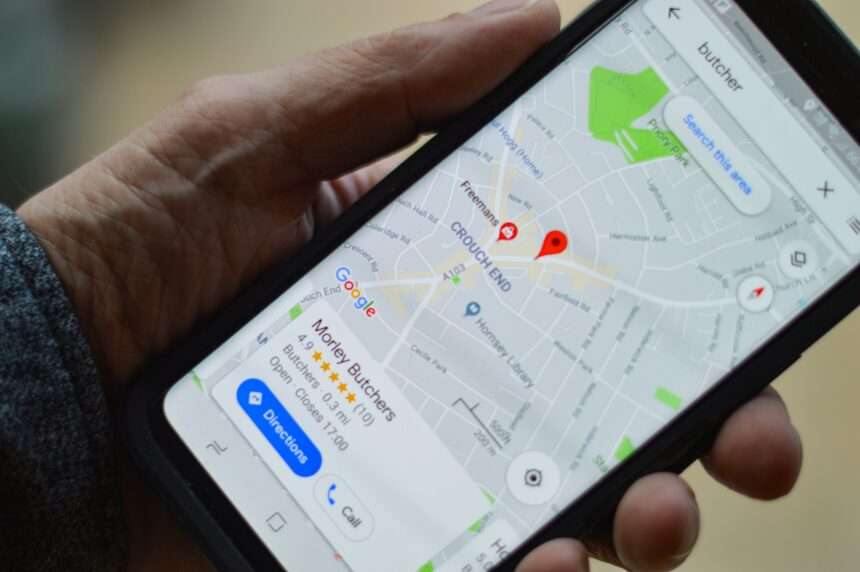Introduction: Why Your Business Needs the Map Pack
For small businesses, Local SEO (Search Engine Optimization) is far more important than global SEO. When a customer searches for “best plumber near me” or “coffee shop open now,” the results are dominated by the Google Maps 3-Pack (or “Map Pack”). Winning one of those three spots is often the difference between a ringing phone and an empty storefront.
In 2025, Google’s AI models like BERT and MUM have made ranking less about generic keywords and more about intent, context, and prominence. The AI is looking for clarity signals: Is your business the most relevant, closest, and most trusted option for that specific user?
Fortunately, Generative AI (GenAI) is the great equalizer here. Small business owners can now use free or low-cost AI tools to automate the time-consuming tasks necessary to signal this relevance and authority to Google. This guide will show you how to use AI to conquer the three core pillars of Local SEO: Relevance, Proximity, and Prominence.
Section 1: AI for Relevance: Optimizing Your Google Business Profile (GBP)
Your Google Business Profile (GBP) is your most important digital asset. It’s the centralized data source Google’s AI relies on to decide if you are relevant to a search query. AI tools can help you ensure every field is maximized for local keywords and clarity.
The AI-Powered GBP Checklist
| GBP Element | Manual Task (Old Way) | AI Automation Strategy (New Way) |
| Category Selection | Guessing the best categories based on competitor lists. | Use an AI-powered optimization tool (like MaxAI or Localo) that analyzes successful competitors and suggests the most precise Primary and Secondary Categories to catch niche searches. |
| Business Description | Writing a generic, keyword-stuffed paragraph. | Prompt ChatGPT/Gemini: “Act as a Local SEO copywriter. Write an engaging, 750-character business description for a [Your Business Type] that highlights our unique selling points and naturally incorporates the keywords: [Local Service 1], [Local Service 2], and [Neighborhood Name].” |
| GBP Posts | Struggling to create fresh, local content weekly. | Use AI content generators (like Planable or RecurPost) to schedule evergreen posts (e.g., FAQs, tips) or write quick posts about local events, promotions, or seasonal hours. |
| Service Descriptions | Listing services without local context. | Ask the AI to rewrite your service descriptions, weaving in long-tail, intent-driven keywords that match natural language queries (e.g., instead of “HVAC Repair,” use “Emergency AC Repair near [Specific Local Landmark]”). |
- Key Insight: Google’s Vision AI also scans images uploaded to your GBP. Ensure your photos and videos are high-quality, bright, and relevant. Use AI photo enhancement tools to sharpen and geo-tag them for better indexing.
Section 2: AI for Prominence: Mastering Reviews and Citations
Prominence is about authority and trust. Reviews are a huge factor, and in 2025, the content of those reviews is analyzed by AI just as much as the star rating. Every interaction is an opportunity to boost your ranking.
AI-Driven Review Management
Google’s AI parses review text for keywords, sentiment, and local relevance. You must respond to every review—good or bad—to reinforce your authority and keywords.
| Review Task | Time-Saving AI Action | SEO Benefit |
| Drafting Responses | Writing unique, thoughtful replies to every customer. | Prompt ChatGPT/Gemini with the customer’s review text. Ask the AI to draft a polite, service-specific response that naturally includes your business name and a targeted local keyword (e.g., “Thank you for the kind words about our organic coffee in Midtown!”). |
| Sentiment Analysis | Reading through hundreds of reviews to spot recurring issues. | Use tools like Synup or BirdEye to automatically analyze review sentiment, identifying if customers frequently mention, for example, “slow service” or “great ambiance.” This helps you address business weaknesses directly. |
| Generating Requests | Manually asking satisfied customers for reviews. | Use AI tools (like Podium or ReviewTrackers) that automatically deploy review requests via SMS or email after a service is complete, ensuring a steady stream of fresh, recent reviews (a major ranking factor). |
The Citation Strategy: Consistency Wins
Citations (mentions of your Name, Address, and Phone number across the web) must be perfectly consistent. AI tools make auditing and fixing these inconsistencies easy.
- Action: Use tools like Moz Local or Yext to run a comprehensive Citation Audit. These platforms use AI to scan dozens of local directories and directories (Yelp, Apple Maps, Yellow Pages) and flag any instance where your NAP data is incorrect or inconsistent (e.g., using “Street” in one place and “St.” in another).
Section 3: AI for Hyper-Local Content and Voice Search
To win the modern local search game, you need to create hyper-local content that answers specific, conversational questions your neighbors are actually asking. This is critical for Voice Search and for being cited in Google’s AI Overviews.
Creating High-Impact Local Content
| Content Strategy | AI Tool Use Case | SEO Outcome |
| Neighborhood Pages | Writing dedicated landing pages for each service area you cover (e.g., “Services in Northwood Park”). | Prompt the AI to write a page focusing on the local context (e.g., “How Northwood Park’s specific architecture impacts roofing choices”) to demonstrate hyperlocal relevance. |
| FAQ Generation | Identifying the most common, localized questions. | Ask ChatGPT/Gemini: “Generate 20 questions a new resident in the [Your City] downtown area would ask a [Your Business Type].” Use these questions to build an on-site FAQ section that instantly answers intent-driven queries. |
| Voice Search Optimization | Ensuring your content is easy for AI assistants to read and cite. | Use the AI to check that your business description and service listings contain natural, long-tail phrases (e.g., “Do you offer emergency plumbing service late on Saturday nights?”). |
| Schema Markup | Implementing technical code that tells AI exactly what your business is. | Use a free Schema Markup Generator tool. Select the LocalBusiness type and fill in the fields (NAP, hours, services). This structured data is a clarity signal that makes your business facts instantly parseable by Google’s LLMs. |
Conclusion: The Path to the Map Pack
Local SEO is no longer about chasing a static algorithm; it is about providing clear, consistent, and locally relevant signals that convince Google’s AI that your business is the most authoritative answer for the searcher’s immediate need.
By consistently applying free AI tools to optimize your GBP, manage review content, and generate hyper-local, conversational content, you are automating your way past competitors and ensuring your small business earns one of those top three, revenue-generating spots on Google Maps.
Source List
- MapRanks:AI-Powered Local SEO: Google Maps Optimization 2025 (September 2025)
- Safari Digital:9 Local SEO Ranking Factors That Matter in 2025 (November 2025)
- TechWyse:Local SEO in 2025: Tactics for the Evolving Google Business Profile (September 2025)
- Link: TechWyse Local SEO 2025
- Local Falcon:Top Ranking Factors for Local SEO in 2025 (December 2024)
- Localo:Google Business Profile optimization – Free & Complete Guide 2025 (October 2025)

